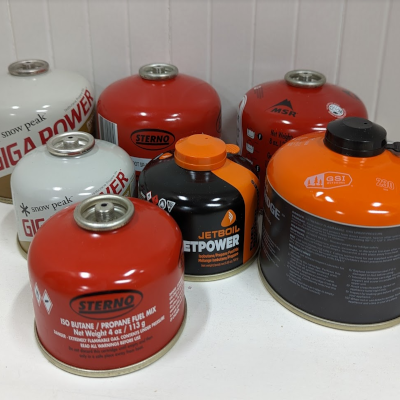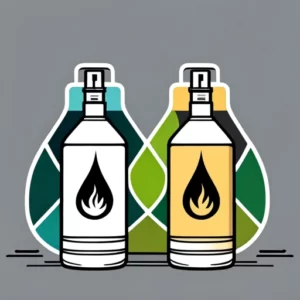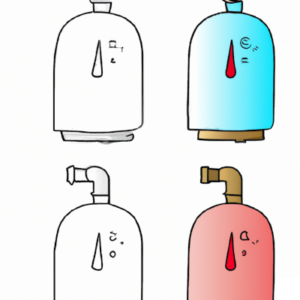Isobutane fuel canisters for backpacking stoves are primarily sold in three net weight sizes of 110g, 230g and 450g with the majority of brands having isobutane mixtures around 80% butane and 20% propane. Manufacturers deviate slightly from these net weights and mix ratios and this should be considered when purchasing along with cost.
Main Factors To Consider
How Much Fuel You Need?
Canister size, or net fuel weight, selection is based on what you need for your trip. This usually relates to how much water will you need to boil plus a safety factor. You may want to consider a combination of sizes or partially used canisters to meet the need of your trip.
JETBOIL claims approximately 12 liters (48 cups) of water boiled for every 100g of fuel. Other brands would be very similar given they have similar isobutane mix ratios. However, it’s important to remember there are many factors that will impact the total amount that can be boiled. These would include things like stove type, wind, initial water temperature, duration of boil and user variability. I tend to carry about 50% more fuel than I think I’ll need. Climate conditions, trip location and the type of food I bring can impact how much extra I bring.
Cost Per Gram
You should select the lowest cost isobutane canister option once you determine the size needed. My research suggests all manufactures have mix ratio around 80/20 which means the will work down to about 15F +/- 10 degrees. Some brands like MSR have fancy names “IsoPro” for their gas. This is really just a marketing gimmick to try to difference themselves by suggesting there is something more special about their gas compared to others. “n-butane” is another example seen on some canisters. n-butane stands for “normal butane’ and is just another name for pure butane.
The one exception would be if you need to select a more extreme cold weather option like Colman XTREME or Primus Cold Gas. These extreme cold weather options will specifically callout the temperature right on the canister.
Find out more details on mix ratios and temperature performance here..
The empty weight of the canisters are less of a factor because they all seem to be within about 10g of each other. I also noticed some minor variation in empty canister weights within the same manufacturers. Maybe this is because all the gas does not get out? I’m not really sure, but I’m not convinced it’s worth worrying about.
Average Fuel Canister Weight Table
The following table provides the average net, empty and full weights for the three typical size canisters. You can use the table get a pretty good idea of how much fuel is remaining in your canisters. It also provides the typical dimensions and approximate amount of water you can boil by size. Individual brands will vary, but I think it’s good enough considering there are more impactful variables like stove type, temperature, pot size to consider.
The one exception would be for the manufacturers that deviate from the normal base net weights like MSR’s 227 g canister and jetboil 100g canister. The details for them and other manufacturers are below.

Detailed Canister Fuel Weight Table
The detailed fuel canister weight table provides the measured weights for 11 brands if you are really into counting grams to achieve your ultralight status.








